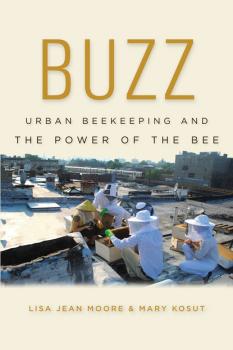Lisa Jean Moore
Список книг автора Lisa Jean MooreSperm Counts
2007 Choice Outstanding Academic Title Winner of the Passing the Torch Award from the Center for Lesbian and Gay Studies It has been called sperm, semen, seed, cum, jizz, spunk, gentlemen's relish, and splooge. But however the “tacky, opaque liquid that comes out of the penis” is described, the very act of defining “sperm” and “semen” depends on your point of view. For Lisa Jean Moore, how sperm comes to be known is based on who defines it (a scientist vs. a defense witness, for example), under what social circumstances it is found (a doctor’s office vs. a crime scene), and for what purposes it will be used (in vitro fertilization vs. DNA analysis). Examining semen historically, medically, and culturally, Sperm Counts is a penetrating exploration of its meaning and power.Using a “;follow that sperm” approach, Moore shows how representations of sperm and semen are always in flux, tracing their twisting journeys from male reproductive glands to headline news stories and presidential impeachment trials. Much like the fluid of semen itself can leak onto fabrics and into bodies, its meanings seep into our consciousness over time. Moore’s analytic lens yields intriguing observations of how sperm is “spent” and “reabsorbed” as it spurts, swims, and careens through penises, vaginas, test tubes, labs, families, cultures, and politics.Drawn from fifteen years of research, Sperm Counts examines historical and scientific documents, children's “facts of life” books, pornography, the Internet, forensic transcripts and sex worker narratives to explain how semen got so complicated. Among other things, understanding how we produce, represent, deploy and institutionalize semen-biomedically, socially and culturally-provides valuable new perspectives on the changing social position of men and the evolving meanings of masculinity. Ultimately, as Moore reveals, sperm is intimately involved in not only the physical reproduction of males and females, but in how we come to understand ourselves as men and women.
Missing Bodies
We know more about the physical body—how it begins, how it responds to illness, even how it decomposes—than ever before. Yet not all bodies are created equal, some bodies clearly count more than others, and some bodies are not recognized at all. In Missing Bodies , Monica J. Casper and Lisa Jean Moore explore the surveillance, manipulations, erasures, and visibility of the body in the twenty-first century. The authors examine bodies, both actual and symbolic, in a variety of arenas: pornography, fashion, sports, medicine, photography, cinema, sex work, labor, migration, medical tourism, and war. This new politicsof visibility can lead to the overexposure of some bodies—Lance Armstrong, Jessica Lynch—and to the near invisibility of others—dead Iraqi civilians, illegal immigrants, the victims of HIV/AIDS and «natural» disasters. Missing Bodies presents a call for a new, engaged way of seeing and recovering bodies in a world that routinely, often strategically,obscures or erases them. It poses difficult, even startling questions: Why did it take so long for the United States media to begin telling stories about the «falling bodies» of 9/11? Why has the United States government refused to allow photographs or filming of flag-draped coffins carrying the bodies of soldiers who are dying in Iraq? Why are the bodies of girls and women so relentlessly sexualized? By examining the cultural politics at work in such disappearances and inclusions of the physical body the authors show how the social, medical and economic consequences of visibility can reward or undermine privilege in society.
Buzz
Winner, 2014 Distinguished Scholarship Award presented by the Animals & Society section of the American Sociological Association Bees are essential for human survival—one-third of all food on American dining tables depends on the labor of bees. Beyond pollination, the very idea of the bee is ubiquitous in our culture: we can feel buzzed; we can create buzz; we have worker bees, drones, and Queen bees; we establish collectives and even have communities that share a hive-mind. In Buzz, authors Lisa Jean Moore and Mary Kosut convincingly argue that the power of bees goes beyond the food cycle, bees are our mascots, our models, and, unlike any other insect, are both feared and revered. In this fascinating account, Moore and Kosut travel into the land of urban beekeeping in New York City, where raising bees has become all the rage. We follow them as they climb up on rooftops, attend beekeeping workshops and honey festivals, and even put on full-body beekeeping suits and open up the hives. In the process, we meet a passionate, dedicated, and eclectic group of urban beekeepers who tend to their brood with an emotional and ecological connection that many find restorative and empowering. Kosut and Moore also interview professional beekeepers and many others who tend to their bees for their all-important production of a food staple: honey. The artisanal food shops that are so popular in Brooklyn are a perfect place to sell not just honey, but all manner of goods: soaps, candles, beeswax, beauty products, and even bee pollen. Buzz also examines media representations of bees, such as children’s books, films, and consumer culture, bringing to light the reciprocal way in which the bee and our idea of the bee inform one another. Partly an ethnographic investigation and partly a meditation on the very nature of human/insect relations, Moore and Kosut argue that how we define, visualize, and interact with bees clearly reflects our changing social and ecological landscape, pointing to how we conceive of and create culture, and how, in essence, we create ourselves.



